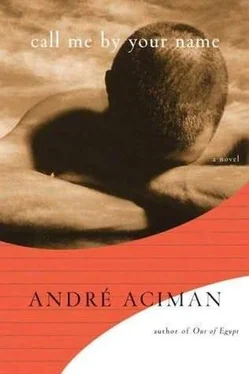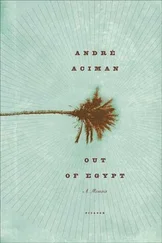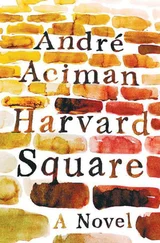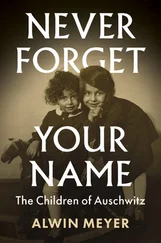André Aciman - Call Me by Your Name
Здесь есть возможность читать онлайн «André Aciman - Call Me by Your Name» весь текст электронной книги совершенно бесплатно (целиком полную версию без сокращений). В некоторых случаях можно слушать аудио, скачать через торрент в формате fb2 и присутствует краткое содержание. Год выпуска: 2007, Издательство: Farrar, Straus and Giroux, Жанр: Современная проза, на английском языке. Описание произведения, (предисловие) а так же отзывы посетителей доступны на портале библиотеки ЛибКат.
- Название:Call Me by Your Name
- Автор:
- Издательство:Farrar, Straus and Giroux
- Жанр:
- Год:2007
- ISBN:нет данных
- Рейтинг книги:5 / 5. Голосов: 6
-
Избранное:Добавить в избранное
- Отзывы:
-
Ваша оценка:
- 100
- 1
- 2
- 3
- 4
- 5
Call Me by Your Name: краткое содержание, описание и аннотация
Предлагаем к чтению аннотацию, описание, краткое содержание или предисловие (зависит от того, что написал сам автор книги «Call Me by Your Name»). Если вы не нашли необходимую информацию о книге — напишите в комментариях, мы постараемся отыскать её.
is clear-eyed, bare-knuckled, and ultimately unforgettable.
Call Me by Your Name — читать онлайн бесплатно полную книгу (весь текст) целиком
Ниже представлен текст книги, разбитый по страницам. Система сохранения места последней прочитанной страницы, позволяет с удобством читать онлайн бесплатно книгу «Call Me by Your Name», без необходимости каждый раз заново искать на чём Вы остановились. Поставьте закладку, и сможете в любой момент перейти на страницу, на которой закончили чтение.
Интервал:
Закладка:
He still seemed surprised by my reaction but gave every sign of believing in, as I of concealing, the pain around my shoulder. It was his way of letting me off the hook and of pretending he wasn’t in the least bit aware of any nuance in my reaction. Knowing, as I later came to learn, how thoroughly trenchant was his ability to sort contradictory signals, I have no doubt that he must have already suspected something. “Here, let me make it better.” He was testing me and proceeded to massage my shoulder. “Relax,” he said in front of the others. “But I am relaxing.” “You’re as stiff as this bench. Feel this,” he said to Marzia, one of the girls closest to us. “It’s all knots.” I felt her hands on my back. “Here,” he ordered, pressing her flattened palm hard against my back. “Feel it? He should relax more,” he said. “You should relax more,” she repeated.
Perhaps, in this, as with everything else, because I didn’t know how to speak in code, I didn’t know how to speak at all. I felt like a deaf and dumb person who can’t even use sign language. I stammered all manner of things so as not to speak my mind. That was the extent of my code. So long as I had breath to put words in my mouth, I could more or less carry it off. Otherwise, the silence between us would probably give me away — which was why anything, even the most spluttered nonsense, was preferable to silence. Silence would expose me. But what was certain to expose me even more was my struggle to overcome it in front of others.
The despair aimed at myself must have given my features something bordering on impatience and unspoken rage. That he might have mistaken these as aimed at him never crossed my mind.
Maybe it was for similar reasons that I would look away each time he looked at me: to conceal the strain on my timidity. That he might have found my avoidance offensive and retaliated with a hostile glance from time to time never crossed my mind either.
What I hoped he hadn’t noticed in my overreaction to his grip was something else. Before shirking off his arm, I knew I had yielded to his hand and had almost leaned into it, as if to say — as I’d heard adults so often say when someone happened to massage their shoulders while passing behind them — Don’t stop. Had he noticed I was ready not just to yield but to mold into his body?
This was the feeling I took to my diary that night as well: I called it the “swoon.” Why had I swooned? And could it happen so easily — just let him touch me somewhere and I’d totally go limp and will-less? Was this what people meant by butter melting?
And why wouldn’t I show him how like butter I was? Because I was afraid of what might happen then? Or was I afraid he would have laughed at me, told everyone, or ignored the whole thing on the pretext I was too young to know what I was doing? Or was it because if he so much as suspected — and anyone who suspected would of necessity be on the same wavelength — he might be tempted to act on it? Did I want him to act? Or would I prefer a lifetime of longing provided we both kept this little Ping-Pong game going: not knowing, not-not knowing, not-not-not knowing? Just be quiet, say nothing, and if you can’t say “yes,” don’t say “no,” say “later.” Is this why people say “maybe” when they mean “yes,” but hope you’ll think it’s “no” when all they really mean is, Please, just ask me once more, and once more after that ?
I look back to that summer and can’t believe that despite every one of my efforts to live with the “fire” and the “swoon,” life still granted wonderful moments. Italy. Summer. The noise of the cicadas in the early afternoon. My room. His room. Our balcony that shut the whole world out. The soft wind trailing exhalations from our garden up the stairs to my bedroom. The summer I learned to love fishing. Because he did. To love jogging. Because he did. To love octopus, Heraclitus, Tristan . The summer I’d hear a bird sing, smell a plant, or feel the mist rise from under my feet on warm sunny days and, because my senses were always on alert, would automatically find them rushing to him.
I could have denied so many things — that I longed to touch his knees and wrists when they glistened in the sun with that viscous sheen I’ve seen in so very few; that I loved how his white tennis shorts seemed perpetually stained by the color of clay, which, as the weeks wore on, became the color of his skin; that his hair, turning blonder every day, caught the sun before the sun was completely out in the morning; that his billowy blue shirt, becoming ever more billowy when he wore it on gusty days on the patio by the pool, promised to harbor a scent of skin and sweat that made me hard just thinking of it. All this I could have denied. And believed my denials.
But it was the gold necklace and the Star of David with a golden mezuzah on his neck that told me here was something more compelling than anything I wanted from him, for it bound us and reminded me that, while everything else conspired to make us the two most dissimilar beings, this at least transcended all differences. I saw his star almost immediately during his first day with us. And from that moment on I knew that what mystified me and made me want to seek out his friendship, without ever hoping to find ways to dislike him, was larger than anything either of us could ever want from the other, larger and therefore better than his soul, my body, or earth itself. Staring at his neck with its star and telltale amulet was like staring at something timeless, ancestral, immortal in me, in him, in both of us, begging to be rekindled and brought back from its millenary sleep.
What baffled me was that he didn’t seem to care or notice that I wore one too. Just as he probably didn’t care or notice each time my eyes wandered along his bathing suit and tried to make out the contour of what made us brothers in the desert.
With the exception of my family, he was probably the only other Jew who had ever set foot in B. But unlike us he let you see it from the very start. We were not conspicuous Jews. We wore our Judaism as people do almost everywhere in the world: under the shirt, not hidden, but tucked away. “Jews of discretion,” to use my mother’s words. To see someone proclaim his Judaism on his neck as Oliver did when he grabbed one of our bikes and headed into town with his shirt wide open shocked us as much as it taught us we could do the same and get away with it. I tried imitating him a few times. But I was too self-conscious, like someone trying to feel natural while walking about naked in a locker room only to end up aroused by his own nakedness. In town, I tried flaunting my Judaism with the silent bluster that comes less from arrogance than from repressed shame. Not him. It’s not that he never thought about being Jewish or about the life of Jews in a Catholic country. Sometimes we spoke about just this topic during those long afternoons when both of us would put aside work and enjoy chatting while the entire household and guests had all drifted into every available bedroom to rest for a few hours. He had lived long enough in small towns in New England to know what it felt like to be the odd Jew out. But Judaism never troubled him the way it troubled me, nor was it the subject of an abiding, metaphysical discomfort with himself and the world. It did not even harbor the mystical, unspoken promise of redemptive brotherhood. And perhaps this was why he wasn’t ill at ease with being Jewish and didn’t constantly have to pick at it, the way children pick at scabs they wish would go away. He was okay with being Jewish. He was okay with himself, the way he was okay with his body, with his looks, with his antic backhand, with his choice of books, music, films, friends. He was okay with losing his prized Mont Blanc pen. “I can buy another one just like it.” He was okay with criticism too. He showed my father a few pages he was proud of having written. My father told him his insights into Heraclitus were brilliant but needed firming up, that he needed to accept the paradoxical nature of the philosopher’s thinking, not simply explain it away. He was okay with firming things up, he was okay with paradox. Back to the drawing board — he was okay with the drawing board as well. He invited my young aunt for a tête-à-tête midnight gita —spin — in our motorboat. She declined. That was okay. He tried again a few days later, was turned down again, and again made light of it. She too was okay with it, and, had she spent another week with us, would probably have been okay with going out to sea for a midnight gita that could easily have lasted till sunrise.
Читать дальшеИнтервал:
Закладка:
Похожие книги на «Call Me by Your Name»
Представляем Вашему вниманию похожие книги на «Call Me by Your Name» списком для выбора. Мы отобрали схожую по названию и смыслу литературу в надежде предоставить читателям больше вариантов отыскать новые, интересные, ещё непрочитанные произведения.
Обсуждение, отзывы о книге «Call Me by Your Name» и просто собственные мнения читателей. Оставьте ваши комментарии, напишите, что Вы думаете о произведении, его смысле или главных героях. Укажите что конкретно понравилось, а что нет, и почему Вы так считаете.









